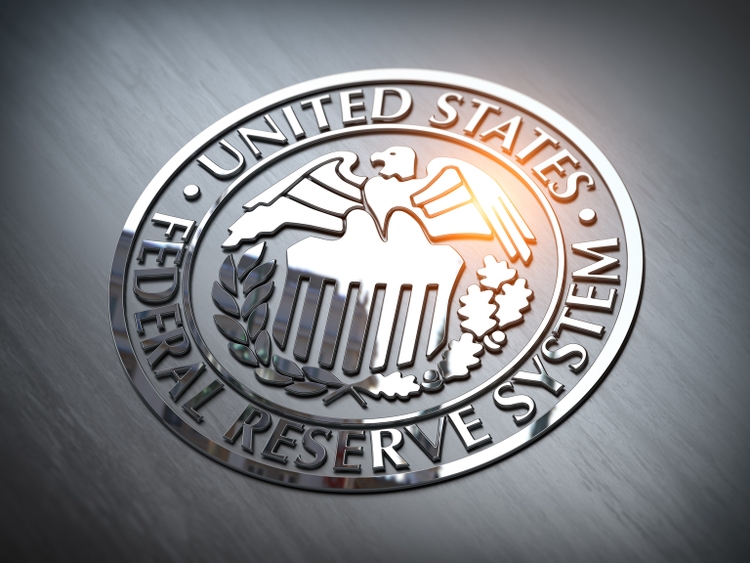Business
Federal Reserve Independence at Stake: Market Concerns Rise

The independence of the Federal Reserve is facing scrutiny as concerns mount under the current administration. A recent poll conducted among readers revealed that 52.4% of respondents expressed significant worry regarding the Fed’s autonomy and its potential implications for financial markets.
This sentiment reflects a growing unease about how political influence could disrupt the Fed’s ability to operate independently. Historically, the Federal Reserve has maintained a critical role in managing the economy, primarily through setting interest rates and regulating monetary policy. Any perceived loss of independence could significantly affect market stability and investor confidence.
Poll Results Highlight Growing Concerns
The poll, conducted by Seeking Alpha, received a substantial response, indicating that market participants are increasingly alert to the potential risks associated with political interference. Among those surveyed, a notable percentage highlighted fears that the Fed might face pressure to align its policies with political agendas, particularly in an election year.
These concerns are not unfounded. The Trump administration has previously made headlines with its criticisms of the Federal Reserve, suggesting that such rhetoric could influence the central bank’s decisions. An erosion of independence could lead to unorthodox monetary policies that might provoke volatility in financial markets, raising questions about the Fed’s long-term credibility.
Potential Market Implications
If the Federal Reserve were to lose its independence, analysts warn of several potential outcomes. A shift towards more politically motivated decisions could result in increased uncertainty in financial markets. Investors generally favor stability, and any hint of political meddling could lead to heightened volatility, affecting everything from stock prices to interest rates.
Moreover, a lack of independence might create skepticism among foreign investors. If international markets perceive the Fed as compromised, they may reassess their investments in the U.S. economy, potentially leading to capital flight. This could weaken the dollar and adversely impact trade balances.
As discussions surrounding the central bank’s role continue, the Federal Reserve’s ability to navigate these challenges will be crucial. Maintaining its independence is vital for sustaining market confidence and ensuring effective economic management.
In conclusion, the implications of the Federal Reserve’s independence are far-reaching. As the political landscape evolves, the central bank’s ability to operate free from external pressures will be pivotal in shaping the economic future. Investors and policymakers alike will be watching closely to see how these dynamics unfold in the coming months.
-

 Education5 months ago
Education5 months agoBrandon University’s Failed $5 Million Project Sparks Oversight Review
-

 Science6 months ago
Science6 months agoMicrosoft Confirms U.S. Law Overrules Canadian Data Sovereignty
-

 Lifestyle5 months ago
Lifestyle5 months agoWinnipeg Celebrates Culinary Creativity During Le Burger Week 2025
-

 Health6 months ago
Health6 months agoMontreal’s Groupe Marcelle Leads Canadian Cosmetic Industry Growth
-

 Education5 months ago
Education5 months agoNew SĆIȺNEW̱ SṮEȽIṮḴEȽ Elementary Opens in Langford for 2025/2026 Year
-

 Science6 months ago
Science6 months agoTech Innovator Amandipp Singh Transforms Hiring for Disabled
-

 Technology6 months ago
Technology6 months agoDragon Ball: Sparking! Zero Launching on Switch and Switch 2 This November
-

 Business2 months ago
Business2 months agoEngineAI Unveils T800 Humanoid Robot, Setting New Industry Standards
-

 Technology3 weeks ago
Technology3 weeks agoDigg Relaunches as Founders Kevin Rose and Alexis Ohanian Join Forces
-

 Top Stories2 months ago
Top Stories2 months agoCanadiens Eye Elias Pettersson: What It Would Cost to Acquire Him
-

 Education6 months ago
Education6 months agoRed River College Launches New Programs to Address Industry Needs
-

 Business5 months ago
Business5 months agoRocket Lab Reports Strong Q2 2025 Revenue Growth and Future Plans
-

 Technology6 months ago
Technology6 months agoGoogle Pixel 10 Pro Fold Specs Unveiled Ahead of Launch
-

 Education6 months ago
Education6 months agoAlberta Teachers’ Strike: Potential Impacts on Students and Families
-

 Technology4 months ago
Technology4 months agoDiscord Faces Serious Security Breach Affecting Millions
-

 Business6 months ago
Business6 months agoBNA Brewing to Open New Bowling Alley in Downtown Penticton
-

 Science6 months ago
Science6 months agoChina’s Wukong Spacesuit Sets New Standard for AI in Space
-

 Lifestyle4 months ago
Lifestyle4 months agoCanadian Author Secures Funding to Write Book Without Financial Strain
-

 Business6 months ago
Business6 months agoNew Estimates Reveal ChatGPT-5 Energy Use Could Soar
-

 Business1 month ago
Business1 month agoNvidia and AMD CEOs Unveil AI Innovations at CES 2026
-

 Business4 months ago
Business4 months agoHydro-Québec Espionage Trial Exposes Internal Oversight Failures
-

 Business6 months ago
Business6 months agoDawson City Residents Rally Around Buy Canadian Movement
-

 Top Stories4 months ago
Top Stories4 months agoPatrik Laine Struggles to Make Impact for Canadiens Early Season
-

 Technology6 months ago
Technology6 months agoFuture Entertainment Launches DDoD with Gameplay Trailer Showcase










